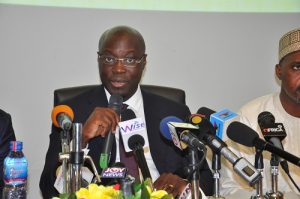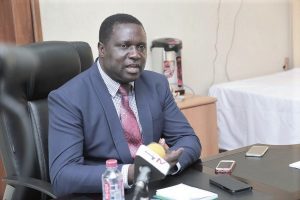Economist and Professor of Finance, Professor Godfred Bokpin says more is expected from government despite reaching a Staff Level Agreement with the International Monetary Fund (IMF).
He argues, it is now time for government to demonstrate enough commitment in getting the buy-in of creditors and also complete processes for the approval of the US$ 3 billion bailout from the Fund’s managers and Board.
“This [Staff Level Agreement] is an important breakthrough and tells you the level of commitment of the IMF to get us from this mess probably in a short time. So now our government must also demonstrate commitment by taking some prior actions that will enable the submission of the Staff Level to the Board for approval”, he said on Eyewitness News.
Prof. Bokpin, also a lecturer at the University of Ghana Business School said the measures to be taken must include cutting down expenditure and the size of government as have always been trumpeted.
“The ball is now in our court. Government now has to walk its talk. But it is not going to be easy because this is a government that has not shown enough commitment in participating in the burden sharing in terms of expenditure-based adjustments to lessen the burden”, he advised.
Ghana on Tuesday, December 13, 2022, reached a Staff-Level Agreement on economic policies and reforms to be supported by a three-year arrangement under the Extended Credit Facility.
Finance Minister, Ken Ofori-Atta said the key fiscal measures, structural reforms, and the medium-term macro-fiscal framework in the 2023 Budget are aligned with the IMF-supported Programme.
But Prof. Bokpin wants government to develop an efficient strategy in its engagement with financial institutions who are key to the debt exchange programme because it is one of the crucial steps with the capacity to cripple financial institutions.
According to him, government must be open to alternatives presented by key stakeholders in its subsequent negotiations.
“Some prior actions are largely within government’s control. I think it has to take considerable and significant assurance that creditors are on board and that they are meeting government halfway. There is no credibility on the part of government so how do we reach a consensus for acceptability among stakeholders.”
“We are yet to go into the deeper austerity of the IMF program when it is approved. The 2023 budget gives us a visible tip of the iceberg. But there is more to come. So we need a broad base consultation in getting everybody along and not the approach government has taken in more or less trying to ambush the financial system.”







